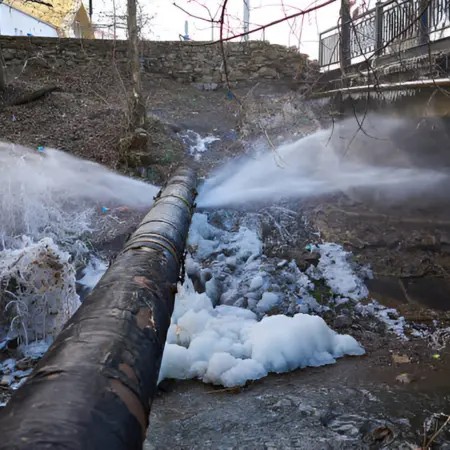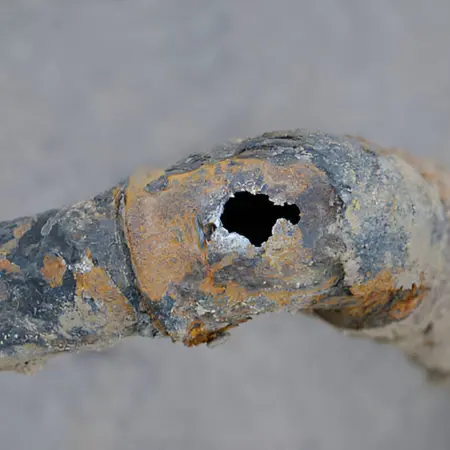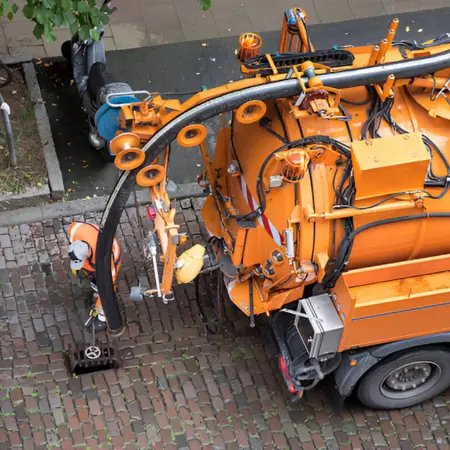Pipes Burst can cause major damage and costly repairs.
Understanding the common causes of pipe bursts is key to keeping your home safe.
Knowing the risks can help you take action from freezing temperatures to pressure buildup.
Key Takeaways
- When temperatures fall below freezing, the water in pipes can freeze.
- As pipes age, their materials can break down, making them weaker.
- High water pressure can stress your pipes, particularly at the joints and connections.
- Clogs can cause pressure to build up behind blockages, leading to bursts.
- Corrosion happens when pipes interact with chemicals in the water, making them weaker.
- Regularly check your pipes, faucets, and fixtures for any leaks.
- If you use drain cleaners, choose natural or enzyme-based options.
Top 5 Reasons Why Pipes Burst And How To Protect Your Home
Pipe bursts can cause major headaches and costly repairs.
They can burst for various reasons, leading to significant damage and costly repairs.
Here’s a closer look at the top five reasons pipes burst and how you can protect your home.
Reason 1: Freezing Temperatures
When the temperature drops below freezing, the water inside pipes can freeze.
As water turns to ice, it expands, which creates pressure against the pipe walls.
This pressure can lead to cracks and cause the pipe to burst.

Common Locations For Freezing
Freezing often happens in exposed pipes, like unheated garages or basements.
Pipes in uninsulated (uncovered) areas, such as outside walls, are also at risk.
Here are some protective measures:
- Insulating (Covering) Pipes: Use foam insulation sleeves or tape to cover exposed pipes.
- Constant Thermostat Settings: Keep your thermostat steady, even when you’re not home.
- Allowing Faucets To Drip: During extreme cold, letting faucets drip can relieve pressure and prevent freezing.
Reason 2: Aging Pipes
As pipes age, their materials can be damaged, weakening structures.
Common materials like cast iron and galvanized steel can rust over time.
Signs Of Aging Pipes
Look for signs like leaks, discoloration in water, and low water pressure.
These can show that your pipes are aging and may need attention.
Here are a few protective measures:
- Regular Inspections: Have a plumbing professional inspect your pipes regularly to catch issues early.
- Consider Pipe Replacement: If your pipes are old, think about replacing them with more durable modern materials.
Reason 3: High Water Pressure
High water pressure can put stress on your pipes, especially at the joints and fittings.
This extra stress can lead to leaks and even bursts.
Here are some protective measures:
- Installing A Pressure-Reducing Valve: This valve helps control and lower water pressure in your home.
- Monitoring Water Pressure: Regularly check your water pressure levels to ensure they are within a safe range.
Reason 4: Clogs And Blockages
Clogs can create pressure buildup behind blockages, which may lead to bursts.
Common criminals for clogs include grease and foreign objects.
Here are a few protective measures:
- Regular Drain Cleaning: Clean your drains regularly to prevent buildup.
- Using Strainers: Install strainers in sinks and showers to catch debris before it enters the pipes.
Reason 5: Corrosion (Rusting)
Corrosion occurs when pipes react with chemicals in the water, weakening them over time.
Factors like water chemistry and age can speed up corrosion.

Common Signs Of Corrosion
Look for leaks, rust on pipes, or discolored water.
These signs show that corrosion may be affecting your plumbing.
Here are a few protective measures:
- Regular Plumbing Inspections: Schedule inspections to catch corrosion early.
- Use Rust-Fighting Materials: When replacing pipes, choose materials that fight against corrosion for better longevity.
General Protective Measures For Plumbing
It’s important to take basic steps to protect your plumbing system to keep your home safe from pipe bursts.
These steps can help you maintain your pipes and reduce the chances of serious issues.
Here’s a detailed look at some effective tips to help you keep your plumbing system in good shape.
1. Regularly Check For Leaks
Frequently inspect your pipes, faucets, and fixtures for any signs of leaks.
Even small leaks can lead to bigger problems if left untreated.
2. Keep Drains Clear
Regularly clean your drains to prevent clogs.
Use strainers in sinks and showers to catch debris and clean them often to avoid blockages.

3. Insulate Pipes
Insulating exposed pipes, especially in unheated areas, can protect them from freezing in cold weather.
Foam insulation sleeves are an easy and effective option.
4. Track Water Pressure
Keep an eye on your home’s water pressure.
If it’s too high, consider installing a pressure-reducing valve.
This will help prevent stress on your pipes.
5. Maintain Your Water Heater
Flushing your water heater regularly removes sediment buildup.
This helps keep it efficient and extends its lifespan.
6. Use Safe Drain Cleaners
If you need to use drain cleaners, go for natural or enzyme-based products.
Chemical cleaners can be harsh on pipes and lead to rust over time.
7. Be Mindful Of What You Flush
Only flush toilet paper and human waste.
Avoid flushing items like wipes and other foreign objects that can cause clogs.
Conclusion
This article talks about the top reasons why pipes burst and how to prevent them from bursting.
General protective measures for plumbing have also been discussed. Contact us at OP Plumbing Hub in case of emergency and for advice.
